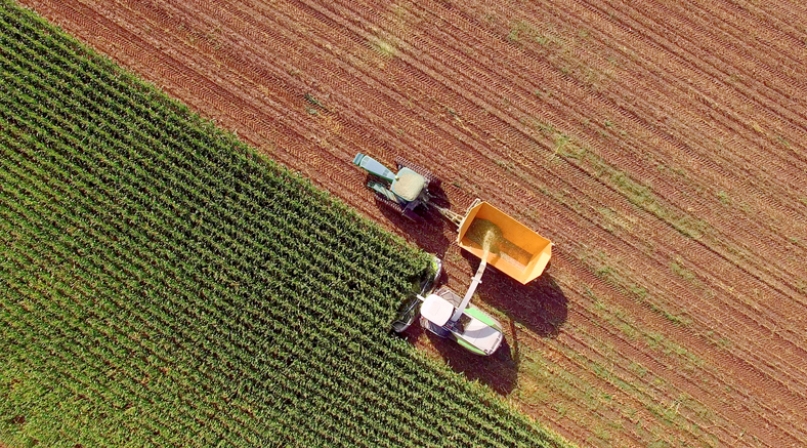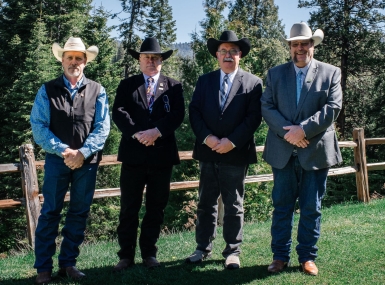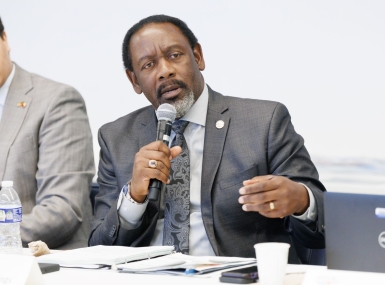NACo sends letter to Congressional leadership outlining county priorities for 2023 Farm Bill
Author

Owen Hart
Upcoming Events
Related News

Key Takeaways
On March 28, NACo sent a letter to Congressional leadership of the U.S. House and Senate Agriculture Committees calling for the inclusion of key county priorities in the 2023 Farm Bill. With the current legislation set to expire on September 30, 2023, Congress is working to draft a new, five-year Farm Bill, with congressional hearings already underway to determine public and private stakeholders’ priorities for the reauthorization. NACo’s letter can be viewed here.
The Farm Bill is an expansive piece of legislation establishing a broad range of federal policies, authorizing programs and regulations on agriculture, rural development, nutrition, conservation and public lands management, among others. Last passed as the Agriculture Improvement Act of 2018 (P.L. 115-334), the 2018 Farm Bill authorized $428.3 billion in funding on a five-year basis for a broad range of programs important to counties. Through loans, technical assistance and direct competitive grant programs, the law authorizes programs that assist county governments in delivering essential services to residents while investing in the long-term health and resilience of the communities they serve. For more information on the Farm Bill reauthorization process and how the Farm Bill impacts county governments, read NACo’s Primer for Counties: 2023 Farm Bill Reauthorization.
NACo’s letter lays out several recommendations for Congressional partners to consider, including:
- Adopting grants-based funding structures instead of direct and guaranteed loans, particularly for programs targeting rural infrastructure and community development.
- Providing at least $1 billion dollars in mandatory funding for a grants-based rural capacity-building program. Funding distributed through this program would invest in the expertise and capacity of rural counties to plan, implement, and measure the impact of locally-led community development strategies.
- Fully extending Good Neighbor Authority eligibility to counties to enhance the ability of the U.S. Forest Service (USFS) and Bureau of Land Management (BLM) to partner with counties on federal forest restoration and management projects.
- Improving farm safety net programs for new, beginning and underserved agricultural producers, including broader crop insurance coverage and improved technical assistance for small and mid-sized producers.
- Maintaining or increasing funding levels for Farm Bill conservation programs, such as the Regional Conservation Partnership Program (RCPP), Environmental Quality Incentive Program (EQIP), and Conservation Stewardship Program (CSP), that empower farmers and ranchers to voluntarily engage in projects that serve the needs of their communities.
- Ensuring Supplemental Nutrition Assistance Program (SNAP) benefit adequacy, especially for families with children, and create a more gradual phase-out from the SNAP program to ease the transition from benefits to income, especially for families.
- Reauthorizing programs supporting rural broadband deployment to continue investments in community-oriented connectivity, fostering economic growth and delivering enhanced educational, health care, and public safety benefits.
As Congress begins the process of drafting a new Farm Bill, NACo urges county leaders to call on their Members of Congress to fully fund the Farm Bill by passing a five-year reauthorization that addresses county priorities. Preserving the law’s programs is key to the strength and stability of the American economy and the continued resilience of urban and rural counties alike. NACo will continue to work with federal partners on the Farm Bill and other critical pieces of legislation.
Resource
Primer for Counties: 2024 Farm Bill Reauthorization

Related News

House, Senate Agriculture Committees release frameworks for 2024 Farm Bill Reauthorization
After months of negotiations and gridlock, lawmakers on the House and Senate Agriculture Committees have released competing frameworks for the 2024 Farm Bill.

Mariposa County finds third time’s a charm for WIR
The Western Interstate Region made up for lost time during its conference in Mariposa County, Calif., welcoming the state of Nebraska and addressing pressing issues for public lands counties.

County mental health advocates take issues to Capitol Hill
Members of NACo’s Mental Health and Wellbeing Commission aimed their advocacy efforts at the Due Process Continuity of Care Act, the Institutions for Mental Diseases exclusion and reauthorizing the SUPPORT Act when visiting Capitol Hill May 2.